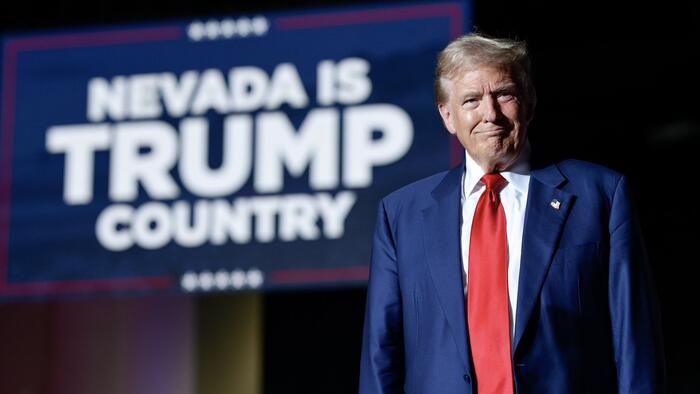In the upcoming 2024 presidential election, Nevada’s political landscape is shifting significantly, potentially favoring Donald Trump, largely due to the influence of ex-Californians who have migrated to the state. A recent report by Politico highlights how this demographic, which has rapidly increased in Nevada, represents over 20% of the population and plays a crucial role in swaying the state’s electoral votes. The reasons for their relocation—often escaping what they see as the escalating leftist policies of California—have cultivated a unique political constituency that could prove decisive in the tight race for electoral college votes. Early voting data shows that registered Republicans have outperformed Democrats, indicating an unprecedented Republican enthusiasm that could reshape expectations for Nevada’s electoral outcome.
Following a mass exodus from California since 2020—prompted by discontent with COVID-19 restrictions and perceived overreaches in governance—these new Nevada residents are bringing their conservative ideals with them. With the Democratic lead in registered voters in Nevada diminishing sharply in recent years, the influx of disillusioned Californians who are motivated by both economic and ideological factors has significantly impacted the voter base. Specifically, the decline in the Democratic advantage from 111,000 to 71,000 registered voters reflects the broader trend of non-affiliated voters gaining ground in Nevada, highlighting the potential for the state to tilt toward Republican candidates if these California transplants unite under common grievances.
While it is inaccurate to say that all individuals moving from California to Nevada are staunchly conservative, many ex-Californians share similar frustrations with California’s governance. Personal narratives from transplants, including business owners and entrepreneurs in Nevada, demonstrate a collective desire for a more supportive and business-friendly environment. Testimonials reveal a strong sentiment against California’s stringent laws and regulatory controls, with many finding Nevada’s governance to be more favorable to individual and business interests. This grassroots movement signifies a shift in the political winds, as these voters are dedicated to advocating for policies that align with their expectations and experiences in their new home.
Activists and politicians in Nevada are keenly aware of this demographic shift. Figures like Senator Jeff Stone, a former California legislator now serving in Nevada, emphasize the critical nature of this emerging voting block. The sentiment among ex-Californians reflects a fear of seeing Nevada become like their former state—a place where they felt constrained by regulations and leftist policies. Many newcomers feel a sense of urgency to protect the freedoms that they sought when relocating, driving them to actively engage in the political process to ensure that Nevada retains its status as a refuge for libertarian values.
The stakes in Nevada are significant for the 2024 election cycle, as its six electoral votes could hold substantial weight in securing presidential victory. Trump’s pathway to victory could depend heavily on winning over not just Nevada, but also swing states like Arizona, Georgia, and North Carolina. The increased Republican turnout observed during early voting is a strong indicator of possible success in capturing Nevada’s electoral votes, which previously had favored Democrats. By analyzing current trends alongside historical data, it becomes clear that Nevada’s shifting demographics could potentially enable Trump to achieve the required 270 electoral votes without winning traditionally Democratic strongholds.
The migration of Americans to states that better reflect their political and cultural ideologies signifies a broader trend that will likely continue beyond the 2024 election. Whether the outcome is favorable for Trump or his opponents, this evolving demographic landscape is poised to shape the American political narrative for years to come, signaling an ongoing realignment within the electorate. As voters continue to advocate for policies that uphold individual freedoms and economic opportunities, states like Nevada may become pivotal battlegrounds reflecting the ambitions and frustrations of their residents, reinforcing the importance of understanding local influences in the national electoral conversation.

